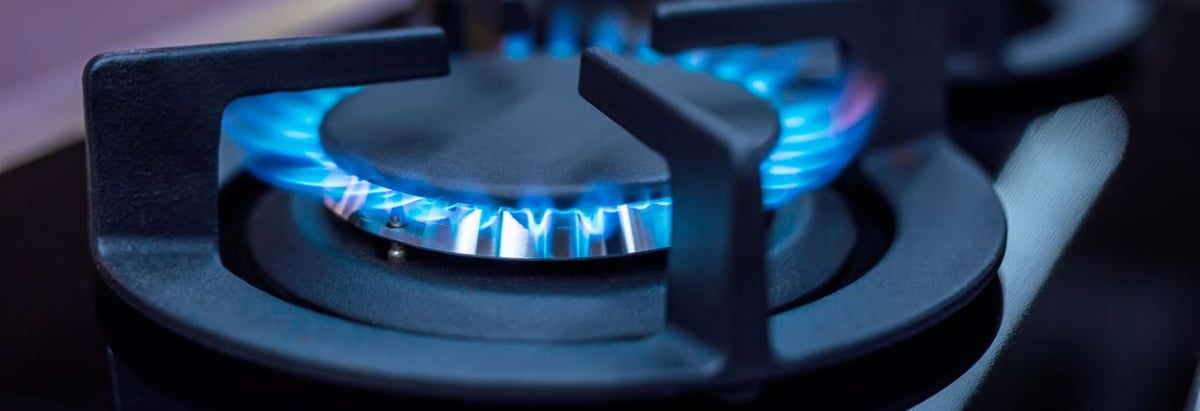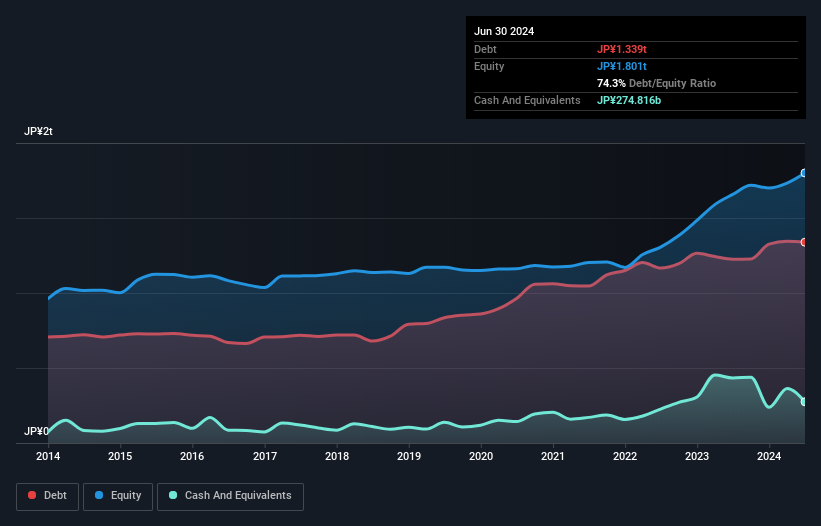
The external fund manager backed by Berkshire Hathaway's Charlie Munger, Li Lu, makes no bones about it when he says 'The biggest investment risk is not the volatility of prices, but whether you will suffer a permanent loss of capital.' So it might be obvious that you need to consider debt, when you think about how risky any given stock is, because too much debt can sink a company. As with many other companies Tokyo Gas Co.,Ltd. (TSE:9531) makes use of debt. But should shareholders be worried about its use of debt?
Why Does Debt Bring Risk?
Debt is a tool to help businesses grow, but if a business is incapable of paying off its lenders, then it exists at their mercy. If things get really bad, the lenders can take control of the business. However, a more usual (but still expensive) situation is where a company must dilute shareholders at a cheap share price simply to get debt under control. By replacing dilution, though, debt can be an extremely good tool for businesses that need capital to invest in growth at high rates of return. When we examine debt levels, we first consider both cash and debt levels, together.
Check out our latest analysis for Tokyo GasLtd
How Much Debt Does Tokyo GasLtd Carry?
You can click the graphic below for the historical numbers, but it shows that as of June 2024 Tokyo GasLtd had JP¥1.34t of debt, an increase on JP¥1.23t, over one year. However, it also had JP¥274.8b in cash, and so its net debt is JP¥1.06t.

How Healthy Is Tokyo GasLtd's Balance Sheet?
We can see from the most recent balance sheet that Tokyo GasLtd had liabilities of JP¥514.6b falling due within a year, and liabilities of JP¥1.50t due beyond that. Offsetting this, it had JP¥274.8b in cash and JP¥365.1b in receivables that were due within 12 months. So its liabilities total JP¥1.38t more than the combination of its cash and short-term receivables.
Given this deficit is actually higher than the company's market capitalization of JP¥1.27t, we think shareholders really should watch Tokyo GasLtd's debt levels, like a parent watching their child ride a bike for the first time. Hypothetically, extremely heavy dilution would be required if the company were forced to pay down its liabilities by raising capital at the current share price.
We measure a company's debt load relative to its earnings power by looking at its net debt divided by its earnings before interest, tax, depreciation, and amortization (EBITDA) and by calculating how easily its earnings before interest and tax (EBIT) cover its interest expense (interest cover). This way, we consider both the absolute quantum of the debt, as well as the interest rates paid on it.
Tokyo GasLtd has a debt to EBITDA ratio of 2.9, which signals significant debt, but is still pretty reasonable for most types of business. But its EBIT was about 12.1 times its interest expense, implying the company isn't really paying a high cost to maintain that level of debt. Even were the low cost to prove unsustainable, that is a good sign. Shareholders should be aware that Tokyo GasLtd's EBIT was down 67% last year. If that decline continues then paying off debt will be harder than selling foie gras at a vegan convention. The balance sheet is clearly the area to focus on when you are analysing debt. But ultimately the future profitability of the business will decide if Tokyo GasLtd can strengthen its balance sheet over time. So if you're focused on the future you can check out this free report showing analyst profit forecasts.
Finally, a company can only pay off debt with cold hard cash, not accounting profits. So it's worth checking how much of that EBIT is backed by free cash flow. During the last three years, Tokyo GasLtd produced sturdy free cash flow equating to 59% of its EBIT, about what we'd expect. This cold hard cash means it can reduce its debt when it wants to.
Our View
Mulling over Tokyo GasLtd's attempt at (not) growing its EBIT, we're certainly not enthusiastic. But on the bright side, its interest cover is a good sign, and makes us more optimistic. We should also note that Gas Utilities industry companies like Tokyo GasLtd commonly do use debt without problems. Looking at the balance sheet and taking into account all these factors, we do believe that debt is making Tokyo GasLtd stock a bit risky. That's not necessarily a bad thing, but we'd generally feel more comfortable with less leverage. There's no doubt that we learn most about debt from the balance sheet. But ultimately, every company can contain risks that exist outside of the balance sheet. Case in point: We've spotted 3 warning signs for Tokyo GasLtd you should be aware of.
When all is said and done, sometimes its easier to focus on companies that don't even need debt. Readers can access a list of growth stocks with zero net debt 100% free, right now.
Valuation is complex, but we're here to simplify it.
Discover if Tokyo GasLtd might be undervalued or overvalued with our detailed analysis, featuring fair value estimates, potential risks, dividends, insider trades, and its financial condition.
Access Free AnalysisHave feedback on this article? Concerned about the content? Get in touch with us directly. Alternatively, email editorial-team (at) simplywallst.com.
This article by Simply Wall St is general in nature. We provide commentary based on historical data and analyst forecasts only using an unbiased methodology and our articles are not intended to be financial advice. It does not constitute a recommendation to buy or sell any stock, and does not take account of your objectives, or your financial situation. We aim to bring you long-term focused analysis driven by fundamental data. Note that our analysis may not factor in the latest price-sensitive company announcements or qualitative material. Simply Wall St has no position in any stocks mentioned.
About TSE:9531
Tokyo GasLtd
Engages in the production, supply, and sale of city gas, and LNG in Japan.
Adequate balance sheet second-rate dividend payer.
Market Insights
Community Narratives



